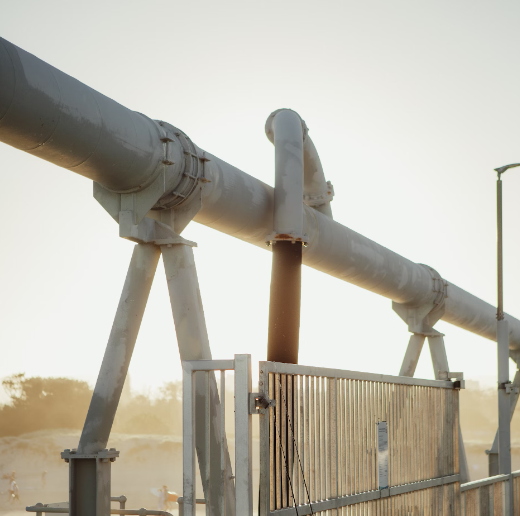There are significant opportunities on the horizon, with hundreds of millions of dollars in funding still available for reservoir and water pipeline projects. This funding, which must be claimed by 2026, is a testament to the commitment and support for these crucial projects.
Conveyance programs have money waiting to support reservoir and pipeline projects, with approximately $233 million in available funding. The Dam Safety Program has about $127 million to support projects strengthening dams and providing safer emergency drainage channels and spillways. The WaterSMART program also has millions to support efforts to manage drought by increasing water supply through projects such as canal piping.
The Bipartisan Infrastructure bill provided the Bureau of Reclamation with a total of $8.3 billion for all types of water infrastructure projects, including rural water, water storage, conservation and conveyance, nature-based solutions, dam safety, water purification and reuse, and desalination. Since 2021, that program has awarded almost $3 billion for 440 water-related projects.

Photo by Godwill Gira Mude on Unsplash
There are several other federal programs and agencies that provide funding to support reservoir and conveyance projects. Many state legislatures have also appropriated funding for water projects. This is all because America has significant water infrastructure needs that must be addressed.
City leaders in Aurora, Colorado, will oversee an initiative to build a 93,000-acre-foot reservoir with the capacity to provide water for 400,000 households. The objective is to meet the city’s growing water demand and provide drought-resistant water storage. The reservoir project is projected to cost $600 million. Four dams spanning approximately two miles in total length will be built and a pipeline will connect the new reservoir to the nearby Spinney Mountain Reservoir.
Officials at the water districts of Kane County and Washington County in Utah will soon launch a $36.8 million watershed project to create new water resources for residents located near the town of Orderville. The project will deliver a new water storage reservoir designed to hold approximately 6,000 acre-feet of water. Kane County will benefit from improved efficiency of water delivery and Washington County will receive additional water supplies. The reservoir is also expected to improve irrigation systems in the area and create new opportunities for water-based recreation. When completed, it will also have created an opportunity to add a hydroelectric plant in the future. A second environmental study related to this project is underway and will be finished before 2024, so additional efforts are likely. Construction is slated for 2025.
The city of San Buenaventura, California, will soon benefit from a project to deliver a long-awaited pipeline that will connect the city to a state water supplier. When completed, the new pipeline will transport approximately 5,400 acre-feet of water annually to the city. The effort carries a $50 million cost projection. The interconnection project will connect the city to the Calleguas system with flow and pressure controls and metering stations. A water blending and monitoring system will be added to San Buenaventura’s water distribution system. The project design has been completed, and construction solicitations will be issued in the fall, with construction slated for 2025.
A $54.5 dam rehabilitation project will soon be launched to restore and upgrade the Mineral Ridge Dam located west of Youngstown, Ohio. The dam impounds Meander Creek Reservoir, which covers over 2,000 acres and stores 11 billion gallons of water for Youngstown, Niles, McDonald, and other surrounding municipalities. The dam is a critical asset to the region, but it was built in 1932 and has not had modifications, upgrades or repairs since 1995. The project falls into the critical category because the dam would pose an immediate risk to area residents in the unlikely event of a structural failure. The project will replace existing emergency spillways and the height of the dam will be increased. Additionally, infrastructure surrounding the dam, such as roadways, instrumentation, and electrical and lighting systems, will be upgraded and replaced. Construction solicitations could be issued as early as the fall of 2024.
The design phase of a project to install a new 48-inch water transmission line in the city of Bentonville, Arkansas, is underway. Its objective will be to design a project to deliver more water resources to the region. The effort will reduce water pressure and allow water tanks to refill more quickly to meet the city’s demand for water. It will require a large new pipeline stretching approximately 14,000 feet in length. When completed, the project will have delivered a solution that will meet the city’s needs by at least 2033. The total cost of the project is estimated at about $17.6 million. Since the project’s engineering and design phase began in March and the immediate need is great, the plan is to issue construction solicitations as soon as possible. City leaders have said that they want the project completed by 2026.
Government officials with water-related infrastructure needs have a historic opportunity to access the financial support they need, and the current access to funding could easily expire in 2026.
About the Author:
As President and CEO of Strategic Partnerships, Inc., Mary Scott Nabers has decades of experience working in the public-private sector. A well-recognized expert in the P3 and government contracting fields, she is often asked to share her industry insights with top publications and through professional speaking engagements. Strategic Partnerships, Inc. also publishes Government Market News, the premier platform for connecting the public and private sector.
Tags: Bureau of Reclamation funding, capital improvement plans, CIP funding, contracting opportunities in water infrastructure, conveyance programs, dam safety projects, desalination projects, drought management funding, environmental projects, federal funding for water infrastructure, funding for water projects, government contracting for water projects, infrastructure funding deadlines, municipal water projects, Nature-Based Solutions for Water, P3 water projects, public-private partnerships in water projects, reservoir funding, rural water projects, state funding for water projects, strategic partnerships in water management, water infrastructure grants, Water Management, water pipeline projects, water purification and reuse, water recycling projects, water storage initiatives, WaterSMART Program






 RSS Feed
RSS Feed